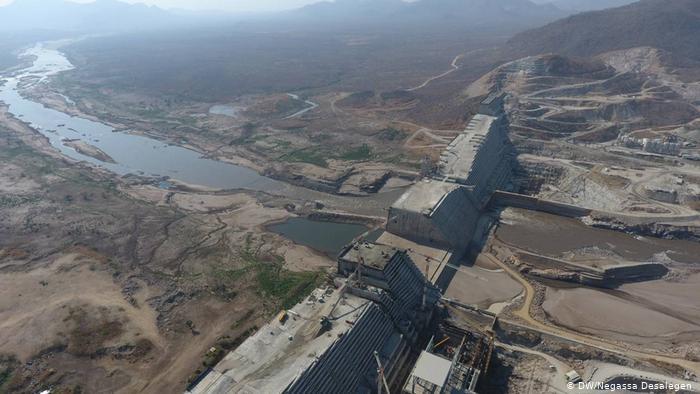In a statement on Saturday, Borrel called on Egypt, Ethiopia, and Sudan to resume talks regarding the Grand Ethiopian Renaissance Dam (GERD).
He said that reaching consensus over the disputed points will allow over 250 million citizens living in the Blue Nile Basin to benefit through investments in water security, irrigation, agricultural production, and electricity generation.
Borrell also said that the EU extended its support to the efforts of the current African Union (AU) Chair, South Africa, to bring the parties involved in talks on the dam to negotiate a solution.
Also Saturday, Egypt’s Minister of water resources and irrigation Mohamed Abdel Aty said that no one has the ability to prevent water from reaching Egypt.
In televised statements, Abdel Aty underscored the importance of cooperation among the Nile Basin countries. He stressed that countries must seek more integration and cooperation and that Egypt is open to dialogue.
The minister said Ethiopia failed to uphold the Washington agreement to resolve GERD dispute, adding that “Each country has its priorities and seeks to reach its own interests, as Sudan is concerned with the safety of the dam, and we (Egypt) are mainly interested in cooperation during periods of drought, and Ethiopia is interested in generating electricity, so the goals are clear and every country has its own agenda.”
He asserted that Egypt remains eager to see Ethiopia fulfill its goals to generate energy, offer cooperation and reach an agreement.Meanwhile, and in reference to the ongoing dispute on the dam, Ethiopia’s Prime Minister Abiy Ahmed said that his country does not recognise rights based on “colonial treaties”. Ahmed also rejected “aggression of any kind”, and renewed his country’s intention to finalise the construction of the Ethiopian dam.
On Saturday, the Ethiopian Prime Minister’s office issued a statement responding to US President Donald Trump’s remarks that Egypt may destroy the GERD as the negations reach deadlock.The Ethiopian statement also reiterated its commitment to peaceful resolution of the GERD dispute based on cooperation, non-interference, mutual trust and the principle of equitable and reasonable utilisation.
“You can’t blame Egypt for being a little bit upset,” Trump said during a call with Sudan and Israel’s leaders, celebrating starting diplomatic ties between the Arab country and Israel on Friday, “It’s a very dangerous situation, because Egypt is not going to be able to live that way. They are going to end up blowing up that dam … they will blow up that dam.”
Trump pointed to the latest US measures against Addis Ababa, which includes the cutting off of millions of US dollars in aid to Ethiopia, after the latter broke a deal to resolve the GERD dispute.
Ahmed, however, has described the GERD construction as “an affirmation of Ethiopia’s commitment to equitable and reasonable utilisation of the Blue Nile River”.
“Occasional statements of belligerent threats to have Ethiopia succumb to unfair terms still abound,” the Ethiopian statement said, “These threats and affronts to Ethiopia sovereignty are a misguided, unproductive and clear violation of international law.”
Ethiopia claimed that the negotiations with Egypt and Sudan have shown significant progress since the AU intermediated, as a manifestation of Africa’s capability to respond to its problems.
Early in October, the Ethiopian authorities banned all flights over the GERD area, “for security reasons”. The move came as the Ethiopian president pledged its inauguration within a year.
Moreover, Ethiopia’s Air Force Commander Brigadier General Yilma Merdasa was quoted as saying that his country is “fully prepared to defend the dam from any attack”.
Egypt fears the Ethiopian dam could threaten its own 55bn cbm share of the River Nile’s water, although Ethiopia insists that the project will not negatively affect Egypt’s interests. Water from the River Nile makes up more than 90% of Egypt’s water supply.
The current per capita share of water in Egypt is around 570 cbm annually, way below the threshold of water poverty (1,000 cbm/year per capita), according to the World Bank.
Both Egypt and Sudan also have other fears over the dam’s security and safety, due to its location in an active geologic region which puts it at risk of earthquakes or mass floods.
Egypt’s President Abdel Fattah Al-Sisi has previously said, “As Egypt appreciates Ethiopia’s right to development, Ethiopia must understand that the River Nile is Egypt’s lifeline.”
































